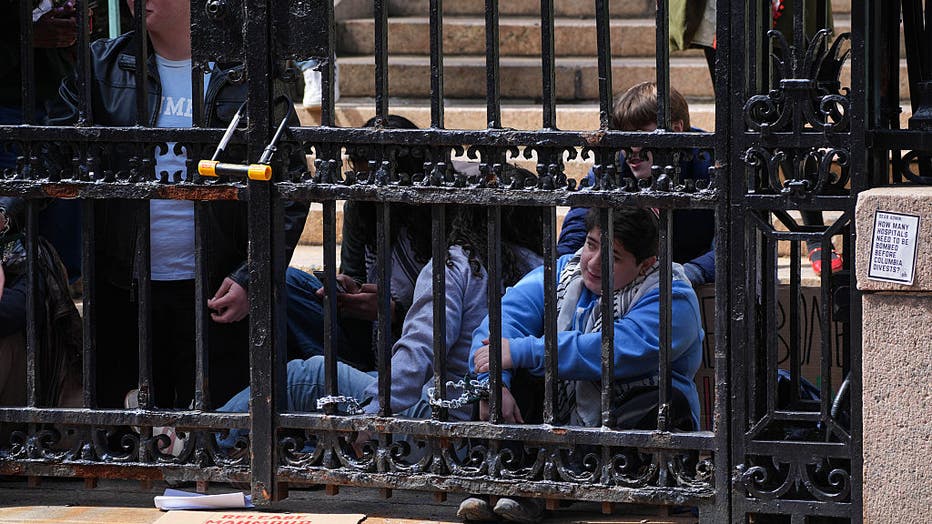Columbia must notify students before handing records to Congress amid antisemitism probe
Trump's war on Columbia University explained
Here is the story on President Trump’s war on Columbia University. It has been brewing since anti-Israeli protesters took over the Ivy League campus, following Hamas’ attack on Israel.
NEW YORK - A federal judge in Manhattan has ruled that Columbia University must give students, including detained activist Mahmoud Khalil, 30 days’ advance notice before handing over any additional documents to Congress. The decision comes as the House Education and Workforce Committee continues its investigation into antisemitism on college campuses nationwide.
While the ruling allows Columbia to share records with lawmakers, it gives students a critical window to challenge those disclosures. Lawyers for Khalil and other students say that window will allow them to keep fighting what they call a government overreach into protected political speech.
What does the ruling actually mean?
What's next:
The court stopped short of blocking Columbia outright from complying with Congress’ requests. But Judge Arun Subramanian said students may refile their legal challenge if they address procedural issues raised during the hearing.
RELATED: Judge rejects Trump administration’s bid to move Mahmoud Khalil’s legal case to Louisiana
Some records have already been turned over, but Columbia told the court those documents were stripped of identifying information. The university says it does not plan to share additional records at this time.
A spokesperson for Columbia declined to comment Friday.
Why is Congress investigating?
The backstory:
The House investigation—led by Republican Rep. Tim Walberg of Michigan—seeks disciplinary records from universities in response to what lawmakers call a rise in antisemitic threats and behavior during student protests related to the Israel-Gaza conflict.
Khalil, a Columbia graduate student facing deportation, was among those requesting a temporary restraining order to stop the university from handing over disciplinary records. He and others argue that doing so would violate their First Amendment rights and chill political speech on campus.

ewish students chain themselves to the gates of Columbia University, demanding accountability from the university's trustees following the arrest of Mahmoud Khalil, in New York, United States on April 2, 2025. (Photo by Lokman Vural Elibol/Anadolu via Getty Images)
In a statement, Walberg called the judge’s decision "a victory for credible oversight," saying the investigation must proceed without interference. "Our Committee will not sit by idly as a wave of antisemitic threats flood our colleges and universities," he said.
What are students and their lawyers saying?
What they're saying:
Lawyers representing the student activists argue that the ruling offers a crucial opportunity to continue their legal push against what they describe as federal overreach.
"We now know that the government is testing the First Amendment’s limits, and the limits of what we as a society will allow," the students’ legal team said in a statement. "We, as a collective, must stand together against these unlawful incursions into our protected speech."
They also challenged the Trump administration’s threats to pull federal funding from Columbia, though the court said they must show legal standing to pursue that part of their case.
Why this matters to New Yorkers
Local perspective:
Columbia University has been at the center of national debates over campus protests, free speech, and antisemitism. With the university headquartered in upper Manhattan and playing a central role in the city’s academic and cultural life, the legal fight is likely to remain a closely watched issue in New York and beyond.
As campus tensions over global conflicts continue to escalate, legal observers say this case could set new precedents for how universities respond to federal oversight and protect student rights.
The Source: This article is based on reporting from the Associated Press on the April 4 ruling in Manhattan federal court. Additional context was provided by FOX 5 New York’s previous coverage of protests and disciplinary issues at Columbia University. Statements from Rep. Tim Walberg and the student plaintiffs’ legal team were included to reflect both sides of the ongoing legal and political debate.

